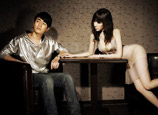
By contrast, Westerners stubbornly stick to their own culture. According to an article written by a German published on Global Times last year, many Western observers remain blissfully ignorant about the Chinese language and refuse to adopt Chinese terminologies into their China reports. They instead describe and interpret Chinese culture on the back of their own Western taxonomies and concepts. Most Western academics frequently replace Chinese originality with Western biblical or philosophical translations, and therefore present exactly the image of China that they want to see: a place of zero originality. There are now "Chinese religions", "Chinese saints", and "Chinese gods", and so on. Yet, you will find that what these scholars "translated" from the Chinese words jiao, shengren, and shen, do not bear any historical or meaningful resemblances to those Western terminologies.
Westerners stick to their own culture probably because they feel confident with it. Chinese culture has a long history with its own unique charm. There is nothing wrong with improving Chinese culture by drawing upon and absorbing foreign cultures, but Chinese must not lose its cultural identity or confidence in this process.
As China's international clout increases steadily in the 21st century, it should phase out some Western culture-centered naming and translation habits. Xiqu is conquering the world with its unique oriental charm, just like artist Mei Lanfang amazed the United States and Europe in last century. It is time for Xiqu to replace Chinese opera as the standard translation for the traditional Chinese art form. The International Theatre Institute (ITI) suggested that the theme of the 33rd ITI World Congress held in Xiamen should be "Empowering the Performing Arts: Journey through Xiqu". The translation for Xiqu is an important thing, and the organizer finally adopted "Xiqu" as the official translation for the art form after carefully considering the advice from experts and scholars. By the same token, the Beijing and Henan branches of Xiqu are translated as Jingju and Yuju. The ITI and participants from other countries all agreed that the terms could be translated this way. Chinese and Western cultures and operas have their own merits. Chinese should learn about and draw upon international terminologies, but cannot slavishly imitate Western culture, or leave Chinese culture or Xiqu lost in translation.
Read the Chinese version: 中國戲曲,不能在翻譯中自我迷失
Source:People's Daily, author: Ji Guoping

















 Public letter calls for gay marriage legislation
Public letter calls for gay marriage legislation


![]()
